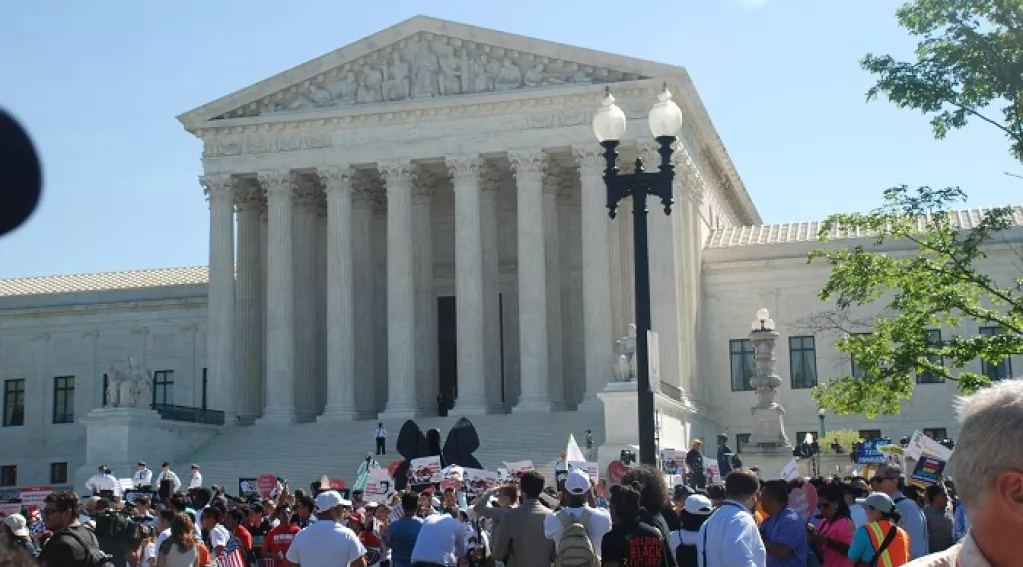Supreme Court: Mandatory Detention of Criminal Aliens Is Constitutional

On March 19, the Supreme Court ruled that deportable aliens do not have a right to a bond hearing, even if they were not immediately detained following their release from criminal custody. The 5-4 ruling in Nielsen vs. Preap, affirmed that a non-citizen is subject to mandatory detention under section 236(c) of the Immigration and Nationality Act (INA) for past criminal offenses that make them deportable. The ruling overturns a decision handed down by the notoriously activist Ninth Circuit Court of Appeals.
The plaintiff, Mony Preap, and a similar class of immigrants argued that mandatory detention should not apply to them and they should be released because Immigration and Customs Enforcement (ICE) did not detain them “immediately” after they were released from criminal custody. The immigrants further argued they deserved due process and a bond hearing so they could demonstrate they were not a public safety threat and would not flee.
The plaintiffs’ argument boiled down to grammaticalnitpicking – can the government detain criminal aliens if ICE did not“immediately” take custody after their release.
“Especially hard to swallow is respondents’ insistence that for an alien to be subject to mandatory detention under §1226(c), the alien must be arrested on the day he walks out of jail (though respondents allow that it need not be at the jailhouse door—the “parking lot” or “bus stop” would do),” Justice Samuel Alito noted in his majority opinion.
Alito is referring to a provision of the INA, 8 U.S.C. § 1226(c), which mandates that an appropriate government agency “shall take into custody” certain immigrants during the period of their deportation or removal proceedings.
Such an immigrant is Mony Preap, the lead plaintiff inthe case. He is a legal permanent resident but had two drug convictions whichqualified him for deportation. Although he was released from criminal custodyin 2006, he was not detained by immigration authorities until 2013, when he wasreleased from jail after an arrest for another offense.
As Alito noted writing for the majority affirming the right of mandatory detention, the plaintiffs were not asking for review of an order of removal, nor were they challenging the decision to detain and/or deport them in the first place. In fact, they did not even take issue with “any part of the process by which their removability will be determined.”
In his concurring opinion, Justice Brett Kavanaughsaid it “would be odd” that Congress would pass an Act that “mandated detentionof particular noncitizens because the noncitizens posed such a serious risk ofdanger or flight that they must be detained during their removal proceedings,”but allowed for them to roam free during their removal proceedings.
Alito also took a swipe at sanctuary jurisdictions bymentioning that there are circumstances when an “immediate” arrest is notpossible, such as when “state and local officials sometimes rebuff theGovernment’s request that they give notice when a criminal alien will bereleased.”
Alito pointed out that in less than three years(January 2014 to September 2016) there were a total of 21,205 declined requestsfrom ICE in 567 counties in 48 states including the District of Columbia.
He then added that “such local resistance [was] unheardof when Congress enacted the language of §1226(c) in 1996.”
The Supreme Court’s decision is an important victoryfor the rule of law and the American people.

